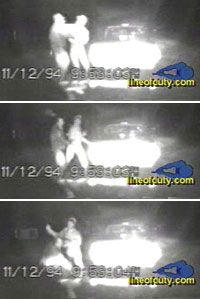 |
The video footage and duty sheet/lesson plan are from the “In the Line of Duty” video Volume 5 Program 1 - “Alabama Officer Assault/Body Language Part One”
See all of the In the Line of Duty videos at ShopPoliceOne.com.
The value of candidly critiquing situations in which an officer makes mistakes in an effort to teach other officers how to avoid those same errors is tremendous. Alabama Officer Rex Bishop, who is featured in this clip from In the Line of Duty, understands that.
“I can sit here and watch this traffic stop…and tell you a hundred mistakes I made,” Rex says. “I hope officers out here on the street can view this traffic stop and realize they’re probably making the same mistakes.”
It’s that kind of selfless evaluation and openness to using your experiences to help others that makes the thin blue line as strong as it is.
As you watch this clip, remember the value of body language. As Officer Bishop begins reading DUI suspect Randall Pouncey his rights, the offender shows clear signs that he is becoming increasingly agitated and potentially combative (signs which are explained in the accompanying In the Line of duty training guide). He conspicuously ignores what Bishop is telling him and after complaining that this DUI arrest will cost him his job, he turns and walks away, much to Bishop’s surprise. Bishop grabs Pouncey’s shirt, at which point the suspect firmly demands that the officer take his hands off him.
If you watch closely, you will see Pouncey take a slight step back, blading himself such that his left shoulder is facing the officer and his right arm is stiffened behind him—a pre-fight move. Seconds after making that shift, you will see Pouncey lean back slightly, raise his right shoulder and fire off a crippling right hook to Officer Bishop’s jaw, knocking the officer out before he had any awareness of a pending attack.
In hindsight, creating distance, implementing calming verbalization techniques while waiting for back-up support and a keen awareness that the suspect’s body movements and demeanor were signaling an attack would have been preferred.
Kudos to Officer Bishop and all those officers like him who work to help others learn from their experiences.


